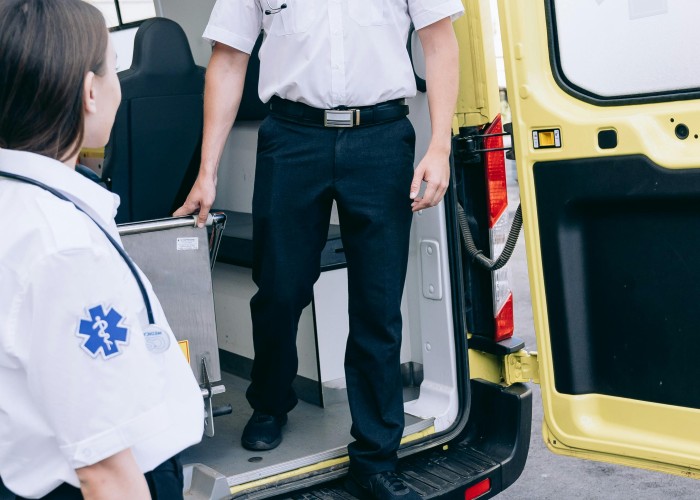Traveling abroad is an exciting experience filled with adventure, discovery, and unforgettable memories. But amidst all the excitement, it’s crucial to prepare for the unexpected — especially when it comes to your health. Whether you’re on a switzerland tour package or exploring multiple countries throughknowing how to handle medical emergencies can make a huge difference. How to Handle Medical Emergencies Abroad.
Medical situations can be stressful, especially when you’re in an unfamiliar place with different healthcare systems and possibly a language barrier. This blog will guide you step by step on how to stay prepared, what to do during a medical emergency abroad, and how to ensure you get the care you need without unnecessary delays.
For more helpful travel advice and insights, visit our blog. To learn more about us, explore our journey in helping travelers navigate their trips smarter.
Why Preparation Matters When Traveling
No one wants to think about getting sick or injured on vacation. But being unprepared can turn a small problem into a major crisis. When you’re away from home — especially in countries like Switzerland where the healthcare system is efficient but strict — knowing the basics can save you from panic.
Whether you’re planning a swiss trip package, a vacation package to Switzerland, or a solo journey through Europe, health preparation should be part of your travel checklist.
Step 1: Before You Travel – Plan Ahead
1. Get Travel Insurance with Medical Coverage
This is the single most important step before any international trip. A lot of travelers focus on booking flights and hotel stays, especially those planning a switzerland holiday package, but forget to secure proper travel insurance.
Choose a policy that includes:
- Emergency medical care
- Hospitalization
- Medical evacuation (if you need to be flown back home)
- Pre-existing condition coverage if applicable
Not all policies are created equal, so read the terms carefully.
2. Know Your Medical History
Keep a digital and printed copy of:
- Your prescriptions
- Allergy information
- Ongoing medical conditions
- Emergency contacts
Store this in a secure place that’s easy to access. If you’re on a swiss holidays package or covering several countries, it helps to have this information translated into the local language.
3. Pack a Travel Health Kit
Include:
- Painkillers
- Band-aids
- Antiseptic cream
- Prescription medication
- Cold/flu relief
- Motion sickness tablets
Make sure to pack only what you need and follow airline regulations if you’re carrying liquids or syringes. How to Handle Medical Emergencies Abroad.
Step 2: Understanding Healthcare in Switzerland and Europe
Switzerland’s Healthcare System
Switzerland is known for its high-quality medical care. If you’re on a package trip to Switzerland, you can expect clean, efficient clinics and hospitals. However, healthcare here is not free — even for minor treatments. That’s why having good insurance is essential.
- Emergency Number: Dial 144 in Switzerland for medical emergencies.
- Pharmacies: Look for the green cross symbol. Many pharmacists speak English and can help with minor health issues.
General Healthcare Tips for Europe
- Emergency services are reliable across Europe.
- Pharmacies can help with minor issues — no need to see a doctor for every small illness.
- In some countries, you may need to pay upfront for treatment and get reimbursed by your insurance later.
Step 3: During a Medical Emergency
1. Stay Calm and Assess the Situation
Whether it’s food poisoning, a sprained ankle while hiking the Alps, or something more serious, try to stay calm. Panic makes it harder to think clearly.
- For urgent issues (like chest pain, head injuries, or broken bones), call the local emergency number immediately.
- If it’s a minor issue, head to a nearby clinic or pharmacy.
2. Call for Help
In Switzerland and most European countries, emergency operators can speak English. Be clear about:
- What happened
- Where you are (use a GPS app if needed)
- The nature of the injury or illness
Always keep your hotel address and emergency numbers saved in your phone or written down in your travel wallet.
3. Use Your Insurance Details
Once you arrive at a hospital or clinic, show your travel insurance card or documentation. Some places may require upfront payment, but you can usually get reimbursed later if your insurance allows it.
If you’re on a switzerland europe tour and visiting multiple countries, double-check that your insurance covers all regions you plan to explore.
Step 4: Post-Emergency Care and Follow-Up
1. Keep All Medical Records
Always ask for receipts, prescriptions, diagnosis notes, and treatment details. These are essential for:
- Insurance claims
- Continuing treatment when you return home
- Seeing another doctor during your trip if needed
2. Follow Medication Guidelines Strictly
Pharmacies in Switzerland and other European countries are well-stocked, but medicines may have different names or dosages than you’re used to. If you receive a prescription abroad, follow the instructions exactly.
Tips for Staying Safe and Healthy During Your Trip
Even if you’re not booking a switzerland couple package or guided swiss tour package, you can still stay safe with these simple habits:
- Drink plenty of water, especially when hiking or skiing.
- Dress appropriately for the weather — Swiss weather can change quickly.
- Don’t skip meals or overexert yourself during sightseeing.
- Wash your hands regularly and carry sanitizer.
- Avoid street food if you have a sensitive stomach. How to Handle Medical Emergencies Abroad.
If you’re planning a long trip, such as a multi-country switzerland land tour package, consider scheduling rest days into your itinerary.
What If You Have a Pre-Existing Condition?
Traveling with an existing health issue doesn’t have to stop you from enjoying your trip. But it does mean extra planning.
- Inform your insurance provider about your condition.
- Carry enough medication for the entire trip, plus a little extra.
- Know the locations of hospitals or clinics in the cities you’re visiting.
- Wear a medical ID bracelet if necessary.
This becomes even more important if you’re planning to travel across multiple countries in one trip, like with a switzerland europe tour.
Know Local Emergency Numbers in Europe
Here are a few emergency medical numbers across popular European destinations:
- Switzerland: 144
- France: 112
- Germany: 112
- Italy: 118
- Austria: 144
Tip: Save these in your phone before you leave. These numbers work across landlines and mobiles and connect you to local emergency services.
Dealing with Minor Illnesses on Your Own
Sometimes you don’t need a hospital — just a little rest and the right medication. Here’s what you can do:
- Visit a local pharmacy for advice. They are often trained to help with non-critical medical issues.
- Rest in your hotel and stay hydrated.
- Adjust your travel plans if needed. Missing one museum or hike is better than worsening your condition.
Even if you’re not traveling through a fancy vacation package to Switzerland, this kind of preparation gives you freedom and peace of mind.
Final Thoughts: Travel Smart and Stay Safe
No one wants to face a medical emergency while traveling. But the reality is, things can happen — a sudden flu, a twisted ankle, or even an allergic reaction. With the right preparation, you can handle any situation with confidence and calm. How to Handle Medical Emergencies Abroad.






Leave a Reply